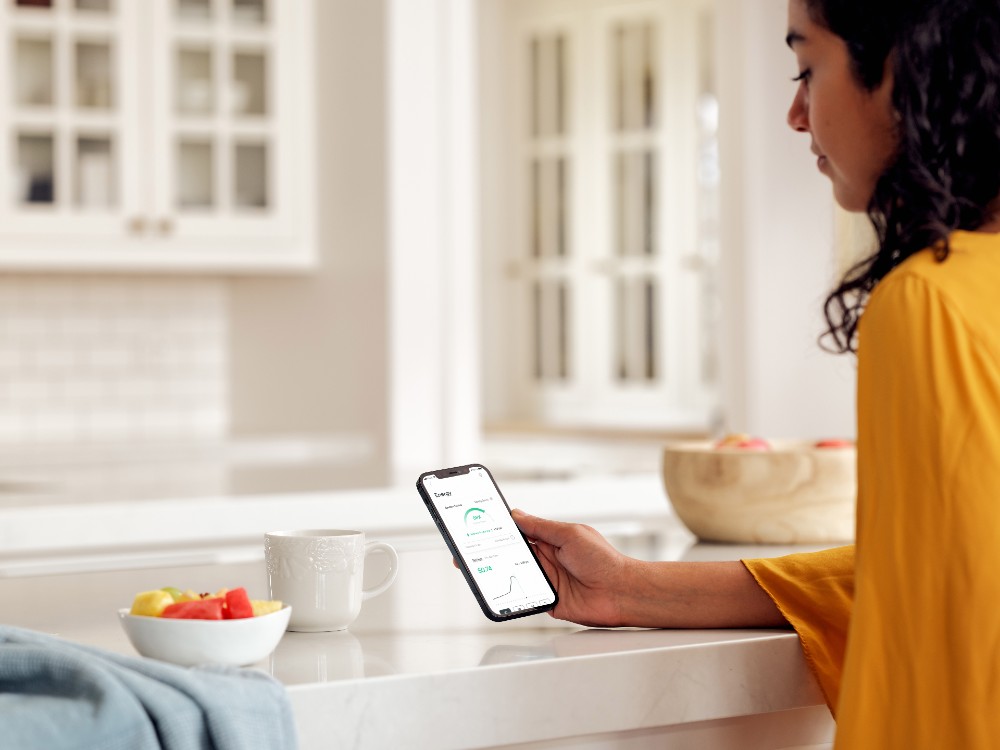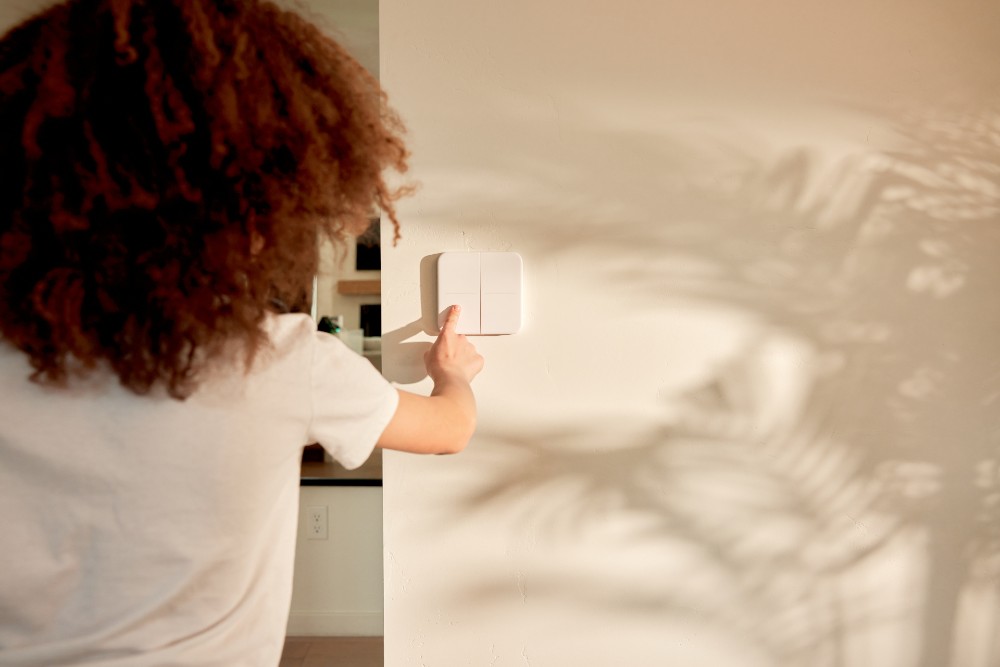Smart Home Devices Benefits: Enhancing Safety, Security, and Convenience
Jan 21, 2025Explore the benefits of smart home technology, including enhanced safety, security, convenience, and energy efficiency. Learn how smart devices are transforming modern living.
The rise of smart home technology has transformed how we interact with our living spaces, offering not just convenience but also enhanced safety, security, and a greater sense of peace of mind. These interconnected devices, ranging from smart locks to sophisticated monitoring systems, are rapidly becoming essential components of modern homes. Understanding the smart home devices benefits is crucial for anyone looking to create a secure and comfortable living environment.
Understanding Smart Home Technology
Smart home technology essentially integrates various electronic devices, appliances, and systems within a home into a single network. This network can be controlled remotely, typically through a smartphone, tablet, or voice commands. This interconnectedness allows for automation of daily tasks and routines, providing homeowners with unprecedented control and insight into their living spaces.
Key Components of Smart Homes
- Smart Hubs: These act as the central brain of a smart home, connecting and controlling various devices. Examples include the Vivint Smart Hub and devices like Amazon Alexa or Google Home.
- Smart Security Devices: These include motion sensors, smart locks, security cameras, and smart doorbells, all working together to protect your home.
- Smart Appliances: These encompass a wide range of devices, from smart thermostats and lighting to refrigerators and ovens, all designed to enhance convenience and efficiency.
- Energy Management Systems: These systems, such as smart thermostats and energy monitors, focus on optimizing energy usage and reducing costs.
Enhanced Safety and Security
One of the most significant smart home devices benefits lies in the realm of safety and security. These systems provide homeowners with tools to monitor their properties, deter potential threats, and respond quickly to emergencies.
Smart Security Systems
Smart security systems integrate various devices to keep your home safe. Security cameras, like Nice IP Cameras, can provide real-time surveillance, while motion sensors, such as the BiDi-Multi Sensor, can detect suspicious activity. Smart locks offer keyless entry and remote locking capabilities, adding an extra layer of protection. Real-time notifications alert homeowners to any potential issues, providing immediate awareness of their home's security status.
 Credit: images.vivintcdn.com
Credit: images.vivintcdn.com
Emergency Response
Smart home technology extends to safety by providing alerts for emergencies. Smart smoke detectors and carbon monoxide detectors can send notifications to your smartphone, even when you're not home. This early warning system allows for prompt action and can be life-saving. Additionally, integration with external security services can offer an extra layer of protection, ensuring a quick response from professionals when needed.
Monitoring and Accessibility
The ability to monitor your home remotely is a significant smart home devices benefit. Whether you're at work or on vacation, you can check on your home's status through a mobile app. This includes checking camera feeds, ensuring doors are locked, and making any necessary adjustments. This remote access provides a level of control and peace of mind that traditional homes cannot offer.
 Credit: images.vivintcdn.com
Credit: images.vivintcdn.com
Peace of Mind Through Smart Home Devices
Beyond physical security, smart home devices offer a sense of peace of mind by simplifying daily life and providing comfort and convenience. This aspect of smart home devices benefits is often overlooked but is equally important for modern living.
Automation of Daily Tasks
Smart homes can automate many daily tasks, reducing stress and freeing up time. Features like voice control allow you to manage lights, temperature, and entertainment systems without lifting a finger. You can also set up automated routines, such as a "good morning" scenario that opens blinds, starts the coffee machine, and adjusts the thermostat automatically. This level of personalization enhances comfort and makes daily life easier.
Convenience and Accessibility
The convenience of smart home technology extends to various aspects of daily living. For instance, you can preheat your oven remotely, control your lights from anywhere, or manage your home's temperature to your liking. These conveniences are particularly beneficial for individuals with mobility limitations or those who want to manage their home from afar. Smart home devices contribute to a sense of control and ease, improving overall quality of life.
Energy Efficiency and Cost Savings
Smart home technology contributes significantly to energy efficiency, leading to reduced utility bills. Smart thermostats learn your preferences and automatically adjust the temperature based on occupancy, time of day, and weather conditions. Smart lighting systems allow you to control your lights remotely, turning them off when not needed and ensuring you’re not wasting energy. These energy-saving features not only benefit the environment but also provide long-term cost savings.
Smart Homes for All Ages and Abilities
The smart home devices benefits extend to people of all ages and abilities, making homes more accessible and inclusive. Smart technology provides a path to independence for those with disabilities and offers peace of mind for caregivers.
Accessibility Features
For the elderly and individuals with disabilities, smart home technology can offer crucial support. Voice-controlled devices, for example, enable people with limited mobility to manage their homes independently. Smart systems can also provide reminders for medication, help control appliances, and improve overall accessibility within the home. This technology enables people to remain in their homes longer and with a greater sense of independence.
Support for Caregivers
Smart home technology benefits caregivers by providing remote monitoring and alerts. Caregivers can check on their loved ones from any location, ensuring their safety and well-being. This remote monitoring can offer peace of mind and allow caregivers to manage their responsibilities more effectively.
Addressing the Concerns
While the smart home devices benefits are numerous, it's important to address potential drawbacks. Concerns about cybersecurity, privacy, and technical glitches are valid and must be considered.
Cybersecurity and Privacy
Smart devices can be vulnerable to cybersecurity breaches, potentially exposing personal data. It's crucial to implement strong passwords, regularly update device firmware, and secure your Wi-Fi network to minimize these risks. Understanding the data collection practices of your smart devices can also help you make informed decisions about your privacy.
Technical Glitches and Compatibility
Technical glitches and compatibility issues can be frustrating. Not all devices work seamlessly together, and some may require additional hardware to function properly. Researching and choosing devices from compatible brands can help mitigate these problems. It's also essential to be prepared for internet outages, as smart home technology relies on a stable internet connection.
Cost Considerations
The initial cost of setting up a smart home can be a barrier for some. However, the long-term benefits, including energy savings and increased home value, can outweigh the upfront investment. Starting small with a few key devices and expanding gradually is a cost-effective way to adopt smart home technology.
The Future of Smart Home Technology
The future of smart home technology is promising, with ongoing innovations focusing on personalization, artificial intelligence, and sustainability. These advancements will further enhance the smart home devices benefits, making them even more indispensable in modern homes.
Personalization and AI
Artificial intelligence (AI) and machine learning are enabling smart devices to personalize settings based on individual preferences and routines. Imagine a home that anticipates your needs, adjusting lights, temperature, and entertainment based on your habits. This level of personalization will make smart homes even more comfortable and convenient.
Sustainable Living
Smart home technology will play an increasing role in promoting sustainable living. Integration with renewable energy sources, advanced energy management systems, and smart water conservation tools will help reduce environmental impact. As these technologies evolve, they will contribute to more eco-friendly homes and communities.
In conclusion, smart home technology offers a wide array of benefits, extending far beyond mere convenience. The enhanced safety, security, and peace of mind provided by these devices make them an invaluable asset for modern living. By carefully considering the potential drawbacks and implementing appropriate security measures, homeowners can fully leverage the transformative power of smart home technology.
Common Smart Home Mistakes and How to Fix Them
Published Feb 19, 2025
Avoid common smart home pitfalls by understanding and fixing these mistakes. Learn how to optimize your smart home for convenience, security, and efficiency....
Ensuring Smart Plug Safety for Winter Devices: A Comprehensive Guide
Published Feb 18, 2025
Ensure smart plug safety for winter devices with our comprehensive guide. Learn how to prevent accidents, save energy, and enjoy a secure home throughout the season....
Supercharge Your Smart Home: 5 Must-Try Google Gemini Tips and Tricks
Published Feb 18, 2025
Unlock the full potential of your smart home with Google Gemini! Discover 5 must-try tips and tricks for effortless control, natural language commands, and AI-powered automation....